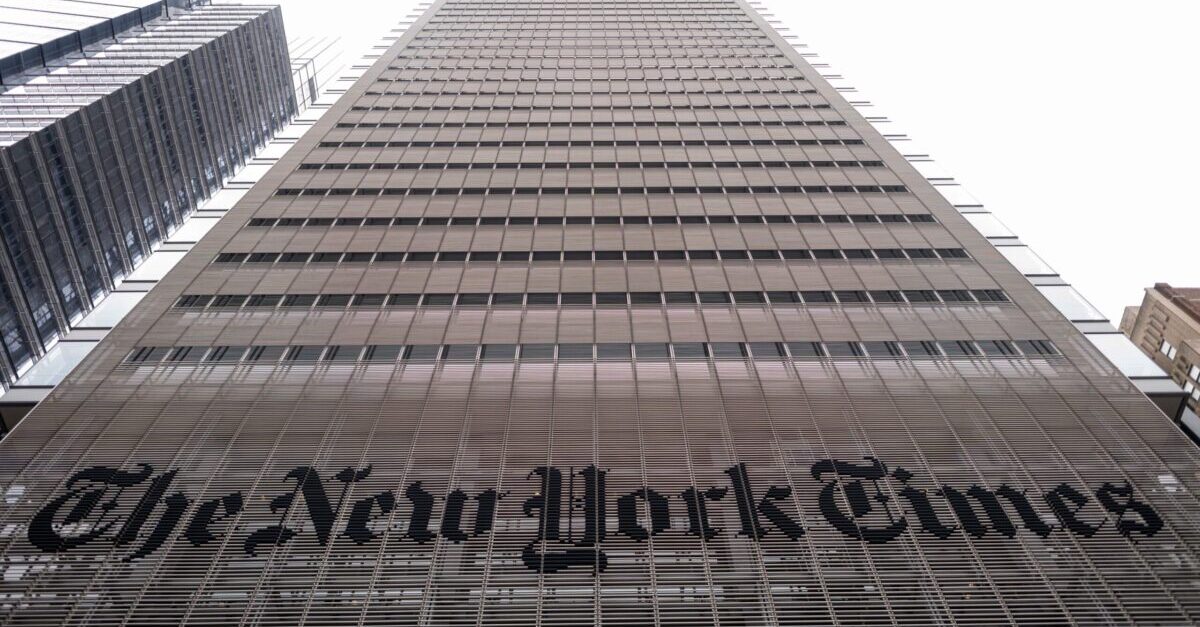
Alarming press freedom advocates on Christmas Eve, a judge upheld his previous order preventing the New York Times from publishing documents prepared by a lawyer for Project Veritas.
“There is no dispute that Project Veritas is the holder of the privilege, and the Times has not claimed that it was waived by Project Veritas,” Justice Charles D. Wood, from New York’s Westchester County, wrote in a 28-page ruling.
Since Wood’s earlier order from November, press freedom advocates called any intrusion upon the Times reporting on Project Veritas a dangerous trampling on the Supreme Court’s precedent in the Pentagon Papers case.
The Times victory in that case in 1971 established an enormous burden upon the government for any prior restraint of the press—and of course, allowed the paper to publish top secret information showing that the Lyndon B. Johnson administration “systematically lied, not only to the public but also to Congress” about the Vietnam War.
Judge Wood noted that the freedom to publish about “matters of public concern is a bedrock principle of the First Amendment,” but he denied that this category included Project Veritas’s legal memos.
“Undoubtedly, every media outlet believes that anything that it publishes is a matter of public concern,” Wood’s ruling states. “The state of our nation is that roughly half the nation prioritizes interests that are vastly different than the other half. Our smart phones beep and buzz all day long with news flashes that supposedly reflect our browsing and clicking interests, and we can tune in or read the news outlet that gives us the stories and topics that we want to see. But some things are not fodder for public consideration and consumption.”
The judge described the legal memos at issue as “garden variety, basic attorney-client advice.”
The Times‘s publisher A.G. Sulzberger said in a statement that he would seek a stay of the ruling and was planning to appeal it.
“This ruling should raise alarms not just for advocates of press freedoms but for anyone concerned about the dangers of government overreach into what the public can and cannot know,” Sulzberger wrote. “In defiance of law settled in the Pentagon Papers case, this judge has barred The Times from publishing information about a prominent and influential organization that was obtained legally in the ordinary course of reporting.”
“In addition to imposing this unconstitutional prior restraint, the judge has gone even further and ordered that we return this material, a ruling with no apparent precedent and one that could present obvious risks to exposing sources should it be allowed to stand,” Sulzberger continued. “We are appealing immediately.”
Project Veritas’s attorney Libby Locke, from the firm Clare Locke, accused the Times of using journalism as a “vehicle for the prosecution of a partisan political agenda.”
“Today’s ruling affirms that the New York Times’ behavior was irregular and outside the boundaries of law,” Locke wrote in an email. “The Court’s thoughtful and well researched opinion is a victory for the First Amendment for all journalists and affirms the sanctity of the attorney-client relationship.”
Attorney Mitchell Epner, who has consulted with media organizations on First Amendment and copyright issues and is now of counsel with Rottenberg Lipman Rich PC, told Law&Crime that he expected the Times appeal to be successful.
“I expect that Justice Wood’s holding that the injunction against the New York Times is not a ‘prior restraint’ because it does not touch on ‘a matter of public concern’ will be overturned on appeal,” Epner told Law&Crime. “Justice Wood’s cramped reading of ‘a matter of public concern’ to exclude attorney-client communications cannot be squared with decades of First Amendment jurisprudence since the Pentagon Papers case.”
Update—Dec. 25 at 6:07 p.m. Eastern Time: This story has been updated to include a comment by Project Veritas’s counsel.
Read the opinion, below:
[photo by JOHANNES EISELE/AFP via Getty Images]